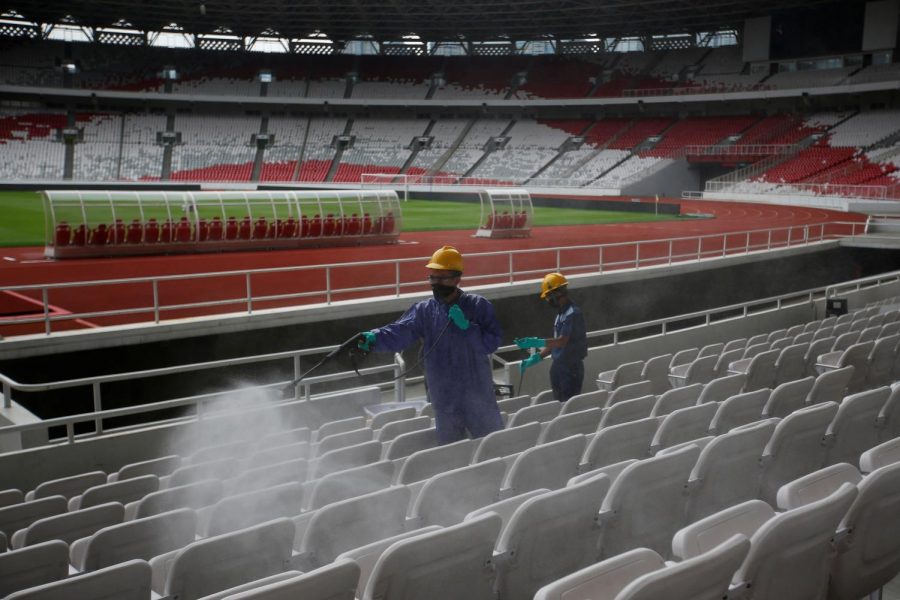Playing The Long Game: The Impact of COVID-19 on Professional Sports
September 30, 2020
Over the course of the past few months, professional athletes have become accustomed to a new model of playing sports – one in which wearing masks and playing in front of empty seats is normal.
Prominent international gatherings have been and will be forced to downsize due to the pandemic. This has had a tremendous impact on the Olympics, and may potentially eliminate the Olympics as a mass spectator event as a result of the risk posed by large crowds. Collegiate athletic departments will also be radically reduced which will further diminish the Olympic movement. Some sports will only suffer from reductions or losses in funding, while others simply won’t survive the financial strain.
The NFL has the most players of any sport in the US whose BMI makes them incredibly vulnerable to the effects of COVID-19. As a result, several athletes have chosen to sit out the season rather than risk contracting the virus while playing. These players have been denied opt-out benefits that have been given to other groups in the league because the NFL refuses to classify players with a BMI over 30 as high-risk for contracting COVID-19. The NFL is “tacitly acknowledging” the large percentage of their workforce that fits into the high-risk category, but as they continue to deny these players benefits, the impact of COVID-19 will be sudden and public – leaving the NFL with an incredibly tragic story to tell.
Professional sports will be devastated for several years, especially if major leagues don’t start “playing the long game.” There are sports, such as auto racing and tennis, that inherently allow for social distancing, leading them to be far more successful in adapting to the pandemic than popular contact sports. Sports teams are suffering a financial hit that will lead to a shakeup in ownership, leaving struggling owners hard pressed not to sell and reap the immediate financial boost. Pro-league sports have a tough decade ahead, and many who try to gain footing are forced to shut down. As time has passed, stadiums have gotten bigger and bigger, but professional team executives hate seeing empty seats and these mega stadiums have fallen out of style. These executives need to focus on TV contracts because it will be a long time before fans will be comfortable packing into a stadium. COVID-19 has created a historic moment when companies can’t justify green lighting stadium expansion if they cannot be certain it will ever be full again. These teams are building their businesses with blind optimism when it would be wise to adopt a more strategic approach.
The experience of attending a professional sports game will be drastically altered for years to come. The adjusted viewing habits of fans and their willingness to spend money on tickets to games is critical to monitor, as the money will follow, or dry up all together. Teams have limited access to the media, as sports have returned and this current model of sports coverage will have a lasting impact on credentialed and respected journalists.
It will be a long time before it is acceptable to pack a mega stadium with screaming fans. So for now, sports must adapt to the new way of providing entertainment – one that is only offered via TV and devoid of live spectators. The ones that adjust will be the ones that survive.
Disclaimer: This article draws upon coverage from The Washington Post



